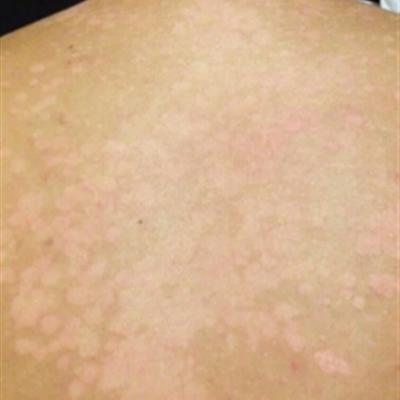What symptom does flu have a fever?
summary
Influenza is an acute respiratory tract infection caused by influenza virus, and it is also a disease with strong infectivity and fast transmission speed. It is mainly transmitted through droplets in the air, contact between people or contact with contaminated objects. What symptom does flu have a fever? Let's talk about it
What symptom does flu have a fever?
Simple influenza often suddenly onset, chills and high fever, body temperature can reach 39 ℃ ~ 40 ℃, with headache, muscle and joint pain, extreme fatigue, loss of appetite and other systemic symptoms, often throat pain, dry cough, nasal congestion, runny nose, sternal discomfort, etc. Her face was flushed, and her conjunctival outer canthus was slightly congested. If there is no complication, it is a self limiting process. After 3-4 days of onset, the body temperature gradually subsides and the general symptoms improve. However, it usually takes 1-2 weeks for cough and physical recovery. Mild influenza is similar to common cold. The symptoms are mild and can recover in 2-3 days.

Pneumonia type influenza is actually complicated with influenza virus pneumonia, which is more common in the elderly, children and people with original cardiopulmonary diseases. The main manifestations were persistent high fever, severe cough, hemoptysis or purulent sputum, shortness of breath, cyanosis, and moist rales in the lungs. Chest X-ray showed scattered flocculent shadows in both lungs. No pathogenic bacteria were found in sputum culture, and influenza virus could be isolated. May die of respiratory and circulatory failure.

Children have influenza during the flu season. The main symptoms are fever, cough, runny nose, stuffy nose, sore throat, headache, and a few have myalgia, vomiting and diarrhea. The clinical symptoms of infantile influenza are often atypical, and febrile convulsions may occur. Neonatal influenza is rare, but it is easy to be complicated with pneumonia, often with septicemia, such as drowsiness, refusal of milk, apnea and so on. In children, the symptoms of laryngitis, tracheitis, bronchitis, bronchiolitis, pneumonia and gastrointestinal tract caused by influenza virus are more common than those in adults

matters needing attention
Rest in bed, drink more water, give liquid or semi liquid diet, suitable for nutrition, supplement vitamins, rinse with warm water or warm saline after eating, keep mouth and nose clean, and give anti infection treatment when systemic symptoms are obvious. Early application of antiviral therapy. We should adhere to the principle of paying equal attention to prevention and isolation as well as drug treatment, and to cause treatment as well as symptomatic treatment. The basic principles include early application of anti influenza drugs, avoiding blind or inappropriate use of antibiotics, strengthening supportive treatment, preventing and treating complications, and rational use of symptomatic drugs.















